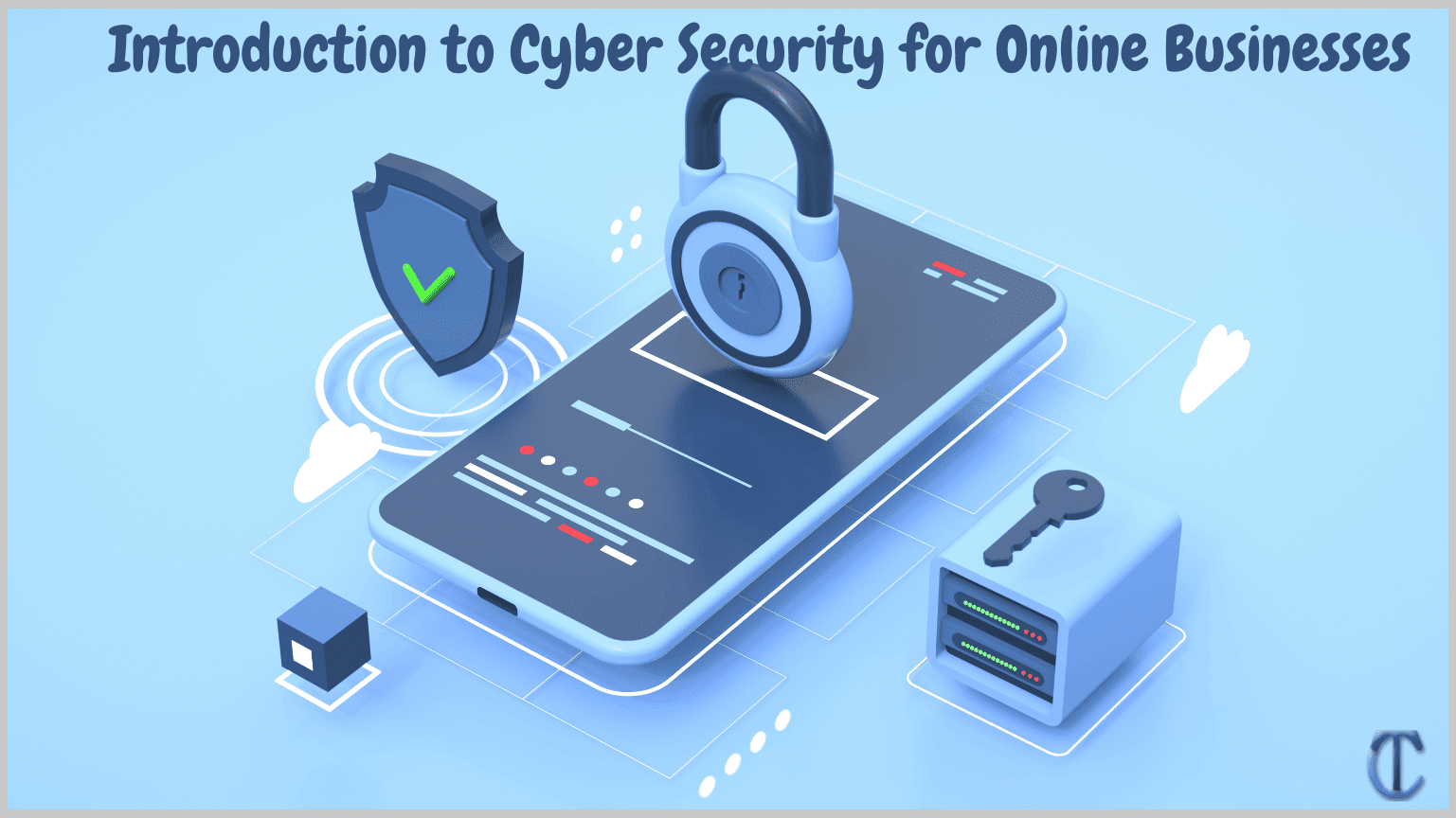Introduction
In today's digital age, online businesses face a growing number of cyber threats. Cybercriminals are constantly coming up with new ways to exploit vulnerabilities in online systems, putting sensitive data at risk.
As an online business owner, it is essential to take proactive measures to protect your company and client data from cyber attacks. In this article, we will discuss seven cybersecurity tips to protect your business online in 2023.
Introduction to Cyber Security for Online Businesses
Cyber security refers to the practice of protecting computer systems, networks, and sensitive data from unauthorized access, theft, or damage. Cyber security is crucial for online businesses, as they are at an increased risk of cyber attacks. Hackers and cyber criminals are always on the lookout for vulnerabilities in online systems to exploit. Once they gain access to sensitive data, they can use it for financial gain, identity theft, or other malicious activities.
Online businesses are particularly vulnerable to cyber attacks because they often deal with sensitive customer data, such as credit card information, social security numbers, and other personal details. The consequences of a data breach can be devastating for an online business, including loss of revenue, damage to reputation, and legal liabilities.
Common Cyber Security Threats Faced by Online Businesses
Online businesses face a range of cyber threats, including phishing attacks, malware, ransomware, and social engineering. Phishing attacks are a common form of cyber attack, where attackers use fake emails or websites to trick users into providing sensitive information such as login credentials, credit card details, or other personal information.
Malware is another common cyber threat that can be used to gain unauthorized access to sensitive data. Malware is software designed to infiltrate computer systems and steal data, often without the user's knowledge.
Ransomware is a type of malware that encrypts files on a computer system, making them inaccessible to the user until a ransom is paid. Social engineering is a tactic used by cyber criminals to gain access to sensitive information by tricking users into providing it. This can include tactics such as pretexting, baiting, and phishing.
Cyber Security Statistics for Online Businesses
Statistics show that cyber attacks are on the rise, and online businesses are becoming increasingly vulnerable to cyber threats. According to a study by Accenture, the average cost of cyber crime to a business has increased by 27% over the past three years. The study also found that the average cost of a single breach for a business is $3.86 million.
Another study by the Ponemon Institute found that the average time to identify and contain a data breach is 280 days, with an average cost of $3.86 million. These statistics highlight the importance of cyber security for online businesses and the need to take proactive measures to protect sensitive data.
Cyber Security Best Practices for Online Businesses
Implementing good cyber security practices is essential for protecting your business from cyber threats. Here are some best practices to follow:
Use strong passwords: Use strong passwords that are difficult to guess and change them regularly.
Keep software up to date: Keep all software and hardware up to date with the latest security patches and updates.
Use multi-factor authentication: Implement multi-factor authentication for all sensitive accounts and data.
Backup data regularly: Regularly backup all important data to ensure it can be restored in the event of a data breach.
Educate employees: Educate employees on cyber security best practices and provide training on how to identify and report potential cyber threats.
Training Your Employees on Cyber Security
Training your employees on cyber security is crucial for protecting your business from cyber attacks. Your employees are often the first line of defense against cyber threats, and they need to be aware of potential risks and how to respond to them.
Provide regular training sessions that cover the latest cyber threats and how to identify and report potential threats. Make sure all employees know how to create strong passwords, use multi-factor authentication, and avoid common cyber security mistakes like clicking on suspicious links or downloading attachments from unknown sources.
Cyber Security Tools for Online Businesses
There are many cyber security tools available that can help you protect your business from cyber threats. Here are some tools you should consider:
Antivirus software: Antivirus software can help protect your computer systems from malware and other cyber threats.
Firewalls: Firewalls can help protect your network from unauthorized access and prevent data breaches.
Virtual private networks (VPNs): VPNs can help protect your online activities and keep your data secure when using public Wi-Fi networks.
Encryption tools: Encryption tools can help protect sensitive data by encrypting it so that it can only be accessed with a decryption key.
Implementing a Cyber Security Plan for Your Online Business
Implementing a cyber security plan is essential for protecting your online business from cyber threats. A cyber security plan should include:
A risk assessment: Identify potential risks and vulnerabilities in your online systems and data.
Policies and procedures: Develop policies and procedures that outline how your business will respond to potential cyber threats.
Incident response plan: Develop an incident response plan that outlines how your business will respond in the event of a cyber attack.
Regular reviews and updates: Regularly review and update your cyber security plan to ensure it remains effective and up to date.
Cyber Security Insurance for Online Businesses
Cyber security insurance can provide an added layer of protection for your online business. Cyber security insurance can help cover the costs associated with a data breach, including the cost of notifying affected customers, legal fees, and public relations expenses.
When choosing a cyber security insurance policy, make sure it covers all potential risks and that the coverage amounts are sufficient to cover any potential losses.
Cyber Security Certifications for Online Businesses
Cyber security certifications can help demonstrate to customers and partners that your online business takes cyber security seriously. Some of the most recognized cyber security certifications include:
- Certified Information Systems Security Professional (CISSP)
- Certified Ethical Hacker (CEH)
- Certified Information Security Manager (CISM)
- Certified in Risk and Information Systems Control (CRISC)
Conclusion and Key Takeaways
Online businesses face a growing number of cyber threats, and it is essential to take proactive measures to protect your business and client data from cyber attacks.
Implementing good cyber security practices, training your employees, and using cyber security tools can go a long way in protecting your online business. Developing a cyber security plan and investing in cyber security insurance can provide added protection and peace of mind.
Finally, obtaining cyber security certifications can help demonstrate to customers and partners that your online business takes cyber security seriously.




Post A Comment:
0 comments: